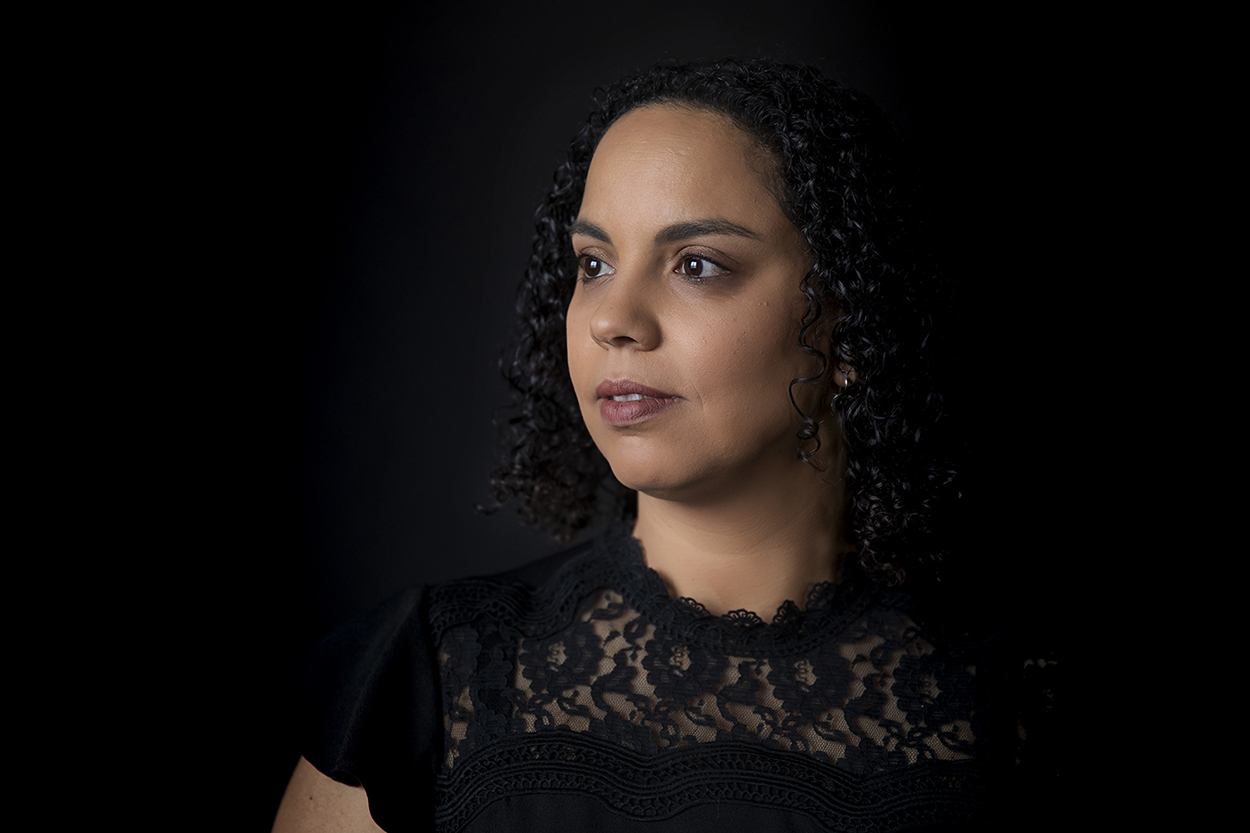Karin Ardon-Dryer Leads Only U.S. Cohort of She Space International

Texas Tech University's Karin Ardon-Dryer, assistant professor of atmospheric science.
Atmospheric Scientist Introduces High School Girls to the Possibilities of STEM.
3.14.2022 | Glenys Young
She Space International (SSI) is a multi-national outreach and education program for
the advancement of science, technology, engineering and mathematics (STEM) among female
high schoolers ages 14-16. Its goal is to support and advance the students' engagement
and interest in scientific fields, particularly in space science.
Currently active in eight countries on five continents, the program has only one U.S.
participant: Texas Tech.
She Space began in Israel in 2018 as the brainchild of Shimrit Maman, director of
the Earth and Planetary Image Facility at Ben Gurion University of the Negev. In 2019,
Maman realized the students could benefit from exposure to scientists in other countries,
so she reached out to colleagues around the world. One of those was Texas Tech's Karin Ardon-Dryer, an assistant professor of atmospheric science in the Department of Geosciences, who was born and raised in Israel.
In its first year as She Space International, the 2019 project brought together high
school girls from Israel, Germany, Brazil and the Lubbock area. At each site, the
students and advisers met in person for lessons exposing them to different scientific
fields and virtually to connect girls with their peers around the world.
“Here, we are focusing on dust, because that's what my group works on and that's the specialty we have here compared
to many of the other sites that are part of this program,” Ardon-Dryer said. “But
it's not just learning about dust; it's about how you perform research: How do you
come up with a question you want to examine? How do you find the tools to answer that?
They're even writing reports. The goal is to give them the tools to learn how research
is done, but also to encourage them that they can actually do it.”
At the end of the session, the girls at each site contributed to a high-level research
project, which they presented in the international forum. The positive response from
the scientific world was immediate.
“In 2019, we were recognized by the United Nations,” Ardon-Dryer said. “We even had
Simonetta Di Pippo, the director of the United Nations Office for Outer Space Affairs,
talk to the girls.”
And then COVID-19 emerged, canceling Texas Tech's participation in the 2020 and 2021
cohorts. But still, SSI was growing. In October 2021, the program received the International
Astronautical Federation's Excellence in “3G” Award.
This year, with the pandemic presenting less of a threat on the South Plains, Ardon-Dryer's
group has rejoined SSI. She, three graduate student mentors and five high school students
from Lubbock and Levelland now meet in person biweekly, with meetings supported by
Texas Tech's STEM Center for Outreach, Research & Education (STEM CORE). They also interact regularly with the cohorts in Germany, Israel, Ivory
Coast, Peru, South Korea, Spain and Togo.
“Having the international communication is amazing: exposing the girls to other cultures,
learning about other places and what it's like to be a young woman in a different
place,” Ardon-Dryer said. “We have girls from Africa, Asia, Europe and South America,
and this year we're really focusing on the connection between the girls. I'm hoping
they will be able to expand their knowledge about the culture in other places. And
most importantly, seeing what others can do encourages you to figure out what you
can do.”
That's why role models are another important aspect of the program. During this spring's
sessions, Ardon-Dryer's group will have presentations from a colleague in NASA's Chief
Science Data Office; scientists with the National Oceanic and Atmospheric Administration
and NASA's Jet Propulsion Laboratory; and Ginger Kerrick Davis, a member of the Texas Tech University System's Board of Regents who retired in September after a 30-year career with NASA.
“This is a way for women role models to talk to the girls, to tell them about their
experiences,” Ardon-Dryer said. “I just want to show the girls that they can do it,
and other females who are successful in the field can show them what was their path
– the good things, the bad things – just to motivate the girls.”
As its name implies, the She Space program highlights each country's space science
agencies and capabilities. That's because its main focus is remote sensing – the science
of obtaining information about objects or areas from a distance, typically using aircraft
or satellites.
“Remote sensing is basically learning about an object you can't touch, so it's learning
about Earth or other planets,” Ardon-Dryer said. “We always keep focused on the Earth.
This year, we're focusing on the impacts of climate change and what we can learn about
it and dust in this region using remote sensing tools.”
While Ardon-Dryer is glad to be involved in the program, and proud to be its only
U.S. representative, she does hope to see it grow to other universities across the
nation.
“My hope, at some point in the future, is to be able to get funding to support the
girls with a scholarship so they can get into Texas Tech to get an undergraduate degree
in STEM,” she said. “In other places, it's getting more recognition and people understand
the importance. Here in the U.S., because we're the only one, I think it's still early
for that.”
Luckily, Texas Tech is no stranger to leading the way.
College of Arts & Sciences
-
Address
Texas Tech University, Box 41034, Lubbock, TX 79409-1034 -
Phone
806.742.3831 -
Email
arts-and-sciences@ttu.edu
